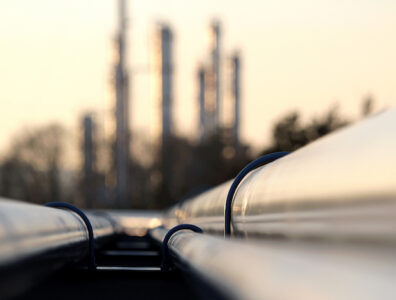
Indonesia has put three exploration blocks on offer in its third oil and gas bid round in 2023, Reuters reported on Wednesday.
The first two onshore concessions,…
READ MORE
Oil reserves2.4 billion barrels
Oil production692,000 bopd
Gas reserves1.3 tcm
Gas production59.3 bcm
Indonesia’s oil and gas industry is a key element in the country’s historic economic development. First oil was discovered in North Sumatra in 1883, which led to the establishment of super-major Royal Dutch Shell in 1890. Production of hydrocarbons continues to be a crucial part of the economy and is increasing in significance as reserves are gradually lowered and local consumption rises. Despite being Southeast Asia’s second largest economy, the government has struggled with making its upstream plays attractive to foreign investors in the modern era due to what are seen as protectionist policies and a history of corruption.
The OPEC member’s upstream and natural gas activities are overseen by SKK Migas. The task force has initiated an ambitious roadmap to shake up the industry and recoup its losses, attract investment and bring the industry back to its former peak in the 1990s. NOC Pertamina is the dominant player in the upstream sector, and has been joined by international players such as China National Offshore Oil Corporation, Total E&P Indonesia, ConocoPhillips, BP Tangguh and ExxonMobil Indonesia. The island nation’s prospective gas plays are mainly found on offshore basins that are not associated with its crude production. E&P operations on its coal bed methane and shale gas are being pushed by the state as a key economic lifeline for the nation.
Indonesia is a large player in the global LNG export market. In the 1990’s it accounted for one-third of international trade of the resource. However it has lost it market dominance due to a rise in LNG exports from competitors such as Qatar, Australia and the US. The country remains a significant regional supplier of LNG, with Japan, South Korea and China among its top buyers.
The Asian nation is also seeking investment in its downstream and midstream sectors. Indonesia boasts a large array of refineries. However, the country’s refining capacities are inefficient for its demand. Indonesia relies on imports to fulfil its petroleum usage. Pertamina owns and operates most of the country’s refining capacity. The country has no international pipelines for petroleum trade and maritime transport remains a crucial component of its energy value chain. State-run Perusahaan Gas Negara manages more than 90% of the country’s midstream infrastructure.

Indonesia's largest power plant is ramping up its deliveries of biomass fuel as part of a bid to shift to more sustainable…
READ MORE
Fugro has won a contract to provide marine surveying at Inpex's 9.5-million-tpy Abadi LNG project in Indonesia.
READ MORE
Eni has completed its acquisition of Neptune Energy’s oil and gas assets for USD 4.9 billion.
READ MORE
Sameer Mohammed, CEO and managing director of Ocean Oilfield Integrated Solutions, talks to The Energy Year about how the…
READ MORE
Indonesia has changed its current oil and gas contract terms to incentivise participation in its upstream sector, including…
READ MORE
Sembcorp Industries has signed a USD 1.41-billion gas sales agreement with local independent Medco Energi Internasional to…
READ MORE
Indonesia has put three exploration blocks on offer in its third oil and gas bid round in 2023, Reuters reported on Wednesday.
The first two onshore concessions,…
READ MORE
Osman Ibrahim, vice-chairman and group CEO of Rawabi Holding, talks to The Energy Year about the company’s expansion and diversification strategy and the net-zero…
READ MORE
Indonesia has opened the first phase of its 2023 oil and gas bid rounds with three plays covering 17,800 square kilometres on offer, Indonesia’s Ministry of Energy…
READ MORE
Rystad Energy has predicted a rise in upstream M&As in Southeast Asia in the next two years based on more than USD 5 million in assets on offer, the energy research…
READ MOREWHOSE PLATFORM IS THIS?
ASK US